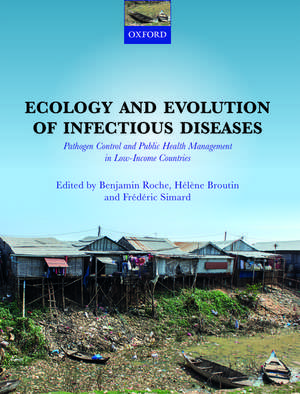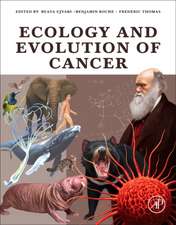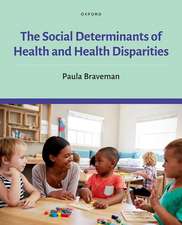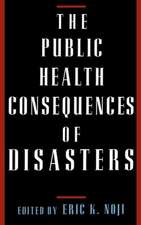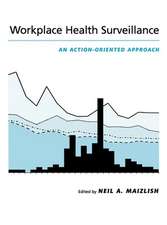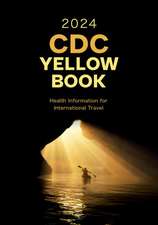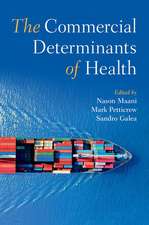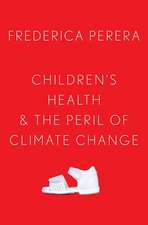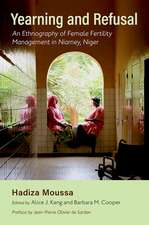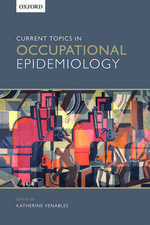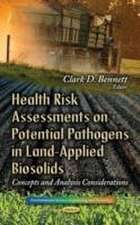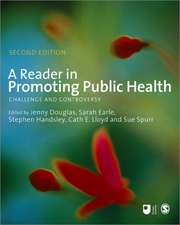Ecology and Evolution of Infectious Diseases: Pathogen Control and Public Health Management in Low-Income Countries
Editat de Benjamin Roche, Hélène Broutin, Frédéric Simarden Limba Engleză Paperback – 7 iun 2018
| Toate formatele și edițiile | Preț | Express |
|---|---|---|
| Paperback (1) | 345.87 lei 31-37 zile | |
| OUP OXFORD – 7 iun 2018 | 345.87 lei 31-37 zile | |
| Hardback (1) | 899.20 lei 3-5 săpt. | |
| OUP OXFORD – 7 iun 2018 | 899.20 lei 3-5 săpt. |
Preț: 345.87 lei
Preț vechi: 396.75 lei
-13% Nou
Puncte Express: 519
Preț estimativ în valută:
66.19€ • 68.85$ • 54.64£
66.19€ • 68.85$ • 54.64£
Carte tipărită la comandă
Livrare economică 03-09 aprilie
Preluare comenzi: 021 569.72.76
Specificații
ISBN-13: 9780198789840
ISBN-10: 019878984X
Pagini: 334
Ilustrații: Over 50 illustrations
Dimensiuni: 189 x 248 x 16 mm
Greutate: 0.71 kg
Editura: OUP OXFORD
Colecția OUP Oxford
Locul publicării:Oxford, United Kingdom
ISBN-10: 019878984X
Pagini: 334
Ilustrații: Over 50 illustrations
Dimensiuni: 189 x 248 x 16 mm
Greutate: 0.71 kg
Editura: OUP OXFORD
Colecția OUP Oxford
Locul publicării:Oxford, United Kingdom
Recenzii
The cherry on the sundae is [...] the final chapter, in which the editors deliver a synthesis that takes the form of a list of key problems in public health that could be improved by applying evolutionary ecology, complete with recommendations. The heads of government — all heads of government — would do well to read it.
The material is very intuitively organized to facilitate a learning progression, interspersing examples past and recent to help draw connections from concepts and frameworks to real life events... The book is accessible and insightful; it would be an excellent read for undergraduate students, graduate students, new or experienced researchers, and public health professionals across multiple disciplines.
The material is very intuitively organized to facilitate a learning progression, interspersing examples past and recent to help draw connections from concepts and frameworks to real life events... The book is accessible and insightful; it would be an excellent read for undergraduate students, graduate students, new or experienced researchers, and public health professionals across multiple disciplines.
Notă biografică
Benjamin Roche is a researcher at the French National Research Institute for Sustainable Development (IRD) in Montpellier, France. His work has mostly focused on the study of diversity involved in infectious diseases, from diversity of hosts (i.e., dilution effect) to the diversity of pathogens (through phylodynamics of influenza viruses) through diversity of transmission modes (consequences of direct and environmental transmission of influenza viruses and Buruli ulcer). He is also working on vector control strategies against Chikungunya in French overseas territory and on prevention strategies against Buruli ulcer in Cameroon. He is leading an international project aiming to develop an innovative conceptual and methodological framework to envision optimal public health strategies. He has published more than 60 papers in leading international journals.Hélène Broutin is a researcher at CNRS (the French National Center of Scientific Research) working on the ecology of infectious diseases. She is currently based at the University Cheikh Anta Diop of Dakar, Senegal. Her principal research focuses on vaccine preventable diseases in low income countries, mainly in Africa. She uses a multidisciplinary approach to identify the determinants (environmental, genetics, genetic, and population) that drive the transmission dynamics of infectious diseases, and the impact of vaccination, with a specific focus on meningitis, respiratory infections, pertussis, and measles. The final goal of her research is to help improve vaccine strategies for a better control of diseases in the long term in low income countries. She is a member of the steering committee of MERIT (Meningitis Environmental Risk Information Technologies), an international experts group on meningitis in Africa led by WHO. She has published more than 20 papers in international journals.Frederic Simard is an expert in vector biology and control working at the French National Research Institute for Sustainable Development (IRD) in Montpellier, France. He has spent 15 years in tropical Africa exploring the population biology, ecology, and genetics of major mosquito disease vectors. Bridging field and lab studies, medical entomology and evolution, he has been interested in exploring issues related to local adaptation, speciation, and transmission. He has published more than 160 papers in peer-reviewed journals in diverse areas of molecular biology and evolution, genetics and genomics, vector control, and tropical medicine. He is a member of the editorial board of several scientific journals and participates in scientific and advisory committees for various national and international institutions. In 2015, he was appointed Director of the MIVEGEC research unit for 6 years by IRD, CNRS, and the University of Montpellier.
